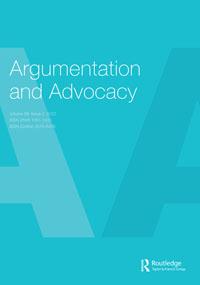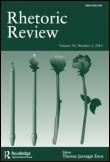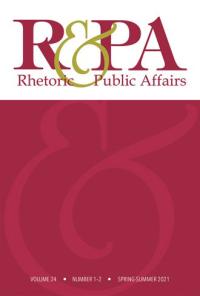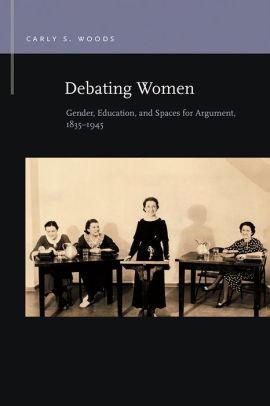Carly S. Woods

Education
Ph.D., , University of Pittsburgh
Research Expertise
Cultural Studies
Gender
Public Address
Rhetoric
Dr. Carly S. Woods is a humanities-based Communication scholar with a passion for history, argumentation, and memory studies. She is particularly interested in rhetorics of belonging and exclusion within education, politics, and social change. Her research has been published in academic journals such as the Quarterly Journal of Speech, Rhetoric Society Quarterly, Argumentation and Advocacy, and Rhetoric Review.
Woods’s first book, Debating Women: Gender, Education, and Spaces for Argument, 1835-1945, was published with Michigan State University Press in 2018. Debating Women highlights the crucial role that debating organizations played as nineteenth and twentieth century women sought to access the fruits of higher education in the United States and United Kingdom. The book was awarded the National Communication Association's James A. Winans-Herbert A. Wichelns Memorial Award for Distinguished Scholarship in Rhetoric and Public Address and the American Forensic Association's Daniel Rohrer Memorial Outstanding Research Award. Woods is currently working on a second book, tentatively titled Ambassadors of Argument, which explores international argumentation, debate, and education in the interwar period. Other ongoing research projects focus on intersectional memory studies and the rhetoric and memory of politician Barbara Jordan.
Woods is the recipient of numerous research, teaching, and service awards. At UMD, she regularly teaches undergraduate and graduate courses on rhetoric, public address, and social change.
Woods Graduate Advising Philosophy
Publications
What Should We Ask? Feminist Methodological Inquiries into Commemoration
Book Chapter from Drs. Carly Woods and Jessica Enoch Out Now!
Author/Lead: Carly S. WoodsRhetorica Rising introduces a range of feminist rhetorical methods and methodologies that can help us understand social justice movements, past and present.
The collection highlights how the field of rhetorical studies has evolved over the past decade, taking up the challenge of creating intersectional feminist scholarship that engages with BlPOC histories and rhetorics, decolonial rhetorics, digital studies, disability studies, queer studies, transnational studies, and discourses regarding reproductive justice.
Be sure to check out the chapter, "What Should We Ask? Feminist Methodological Inquiries into Commemoration," by Dr. Carly Woods (Communication) and Dr. Jessica Enoch (English)! The book was edited by Eileen E. Schell, K.J. Rawson, Curtis J. Jewell, Abigail H. Long, Sidney Turner, and Gabriella Wilson.
Read More about What Should We Ask? Feminist Methodological Inquiries into Commemoration
Revisiting twentieth century argumentation through debate: The University of Puerto Rico’s 1928 tour of the United States
This essay makes the case for thinking about the history of debate across borders. In order to contribute to this special issue’s focus on argumentation in the Americas.
Author/Lead: Carly S. Woods
Speech and debate have been central in shaping traditions of argumentation in the United States. While much of debate history has focused on individual nation-states, attention to twentieth century intercollegiate debate tours offers one way for argumentation scholars to consider the transgeographic flows of argument exchange. This essay makes the case for thinking about the history of debate across borders. In order to contribute to this special issue’s focus on argumentation in the Americas, I offer the example of the University of Puerto Rico’s 1928 debate tour of the eastern United States, in which student debaters were able to ‘speak back’ to U.S. imperialism through embodied performances that compelled audiences to consider different perspectives on education, language, citizenship, and sovereignty.
Keeping TABS: Feminist Publishing and Pedagogy in the Wake of Title IX
Article explores journal fighting school sexism in the wake of Title IX.
Author/Lead: Carly S. Woods
TABS: Aids for Ending Sexism in School was a journal founded by Lucy Picco Simpson and the Organization for Equal Education of the Sexes. Attention to this publication sheds light on feminist activism as it transformed in the wake of Title IX legislation in the late 1970s and 1980s. In examining the journal’s ability to facilitate networking, production, and accountability, we gain greater insight into how teachers and students were able to question normative messages about race, gender, class, and ability in educational materials and diversify the range of historical figures discussed in schools.
Read More about Keeping TABS: Feminist Publishing and Pedagogy in the Wake of Title IX
Digitality, Diversity, and the Future of Rhetoric and Public Address
Article indicates how theorizing rhetoric and digitality transforms critical and historical traditions.
Author/Lead: Damien Smith Pfister, Carly S. WoodsNon-ARHU Contributor(s): E. Johanna Hartelius & Jessica H. Lu

The pandemic and economic catastrophes of 2020 and the forms of resistance that surged against racist systemic and physical violence indicate, we contend, that studying public address in the present moment requires attention to the mutual contingency of rhetoric and digitality. Relying on interdisciplinary literatures and a global perspective, we direct such attention along three vectors: platforms, commons, and methods. We indicate how theorizing rhetoric and digitality transforms critical and historical traditions. In expanding the purview of the public address tradition while retaining the tradition's hermeneutic potential, we emphasize the need to challenge disciplinary terms and the desirability of expanded analytical methods. We submit that by not attending sufficiently to the advent and diffusion of digital media technologies, public address scholarship misses opportunities to shape ongoing conversations about how rhetoric mediates public affairs; and that insofar as struggles for racial justice are bound up with, not just mediated by, digitality, the prospects of diversifying rhetoric's professoriate increase when research on this topic is central rather than peripheral.
Read More about Digitality, Diversity, and the Future of Rhetoric and Public Address


